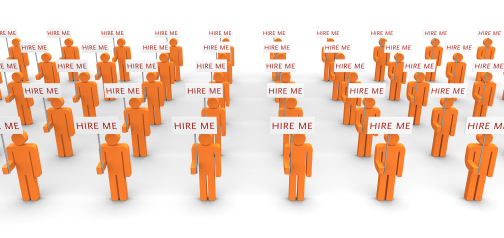Syllabus: Consequences of unemployment
 Syllabus: Discuss possible economic consequences of
Syllabus: Discuss possible economic consequences of
unemployment, including:
- a loss of GDP,
- loss of tax revenue,
- increased cost of unemployment benefits,
- loss of income for individuals, and
- greater disparities in the distribution of income.
The main cost of unemployment is a personal one to those who are unemployed, however, the whole economy suffers also.
Syllabus: Discuss possible personal and social consequences of unemployment, including
- increased crime rates,
- increased stress levels,
- increased indebtedness,
- homelessness and
- family breakdown.
Individuals may become dispirited by unemployment and lose their self-esteem and confidence. This may affect their motivation to work. The longer individuals are unemployed, the more they may lose their skills and become uemployable which is bad for the economy as well.
On top of that, the problems associated with unemployment may result in the unemployed being less healthy, which leads to health-related costs. Areas of high unemployment and social deprivation may also experience higher crime levels, suicide rates and psychological problems. Certainly, both the national economy, and society in general, suffers from high rates of unemployment especially when it becomes long-term.
As well as these microeconomic and sociological effects, there will also be macro effects. These will include:
-
Loss of output to the economy - the unemployed could be producing goods and services and if they are not, then GDP is lower than it could be -this is the opportunity cost of unemployment.
- Loss of tax revenue - unemployed people are not earning and not paying tax. The government has reduced revenues to spend on public services.
-
Increase in government expenditure - the government has to pay out benefits to support the unemployed - less revenue and more expenditure.
- Loss of profits - with higher employment firms are likely to sell more and make higher profits. If they make less profit because of unemployment, they may have less funds to invest.
The true impact of unemployment will depend on two factors. These are:
- The unemployment rate (see Page 79)
- The duration of unemployment
Normally, the longer an individual is unemployed, the more difficult it is to find work. Similarly, a large number of unemployed people cause more social problems than a small number.
Unemployment has individual consequences. Some of those who are unemployed may seek a career change, while others may enjoy their additional leisure time! However, for the majority, there will be a fall in disposable income, since unemployment-related benefits seldom pay as much as salaried employment. Living standards will fall and some of the unemployed might be forced to over-use credit and loan-financed purchases. The longer they remain unemployed, the less training and development they are receiving and the more unemployable they become.
For businesses, unemployment means lower demand for some products and employee morale may suffer. Productivity could fall, as workers fear that they are next for the unemployment pile. However, a larger pool of unemployed will exist, so some employers might find hiring new labour easier (and perhaps cheaper).
The economy might also suffer as output falls (and therefore tax revenue falls) and government expenditure on benefits increases. Opportunity cost decisions will have to be made. The distribution of income will become more uneven, and unemployment might cause downward pressure on wage levels, as workers fear pricing themselves out of a job.
In summary,when unemployment exists, it means lost output, as the economy will be working below full potential and tax revenues will be lower. As unemployment rates increase more state benefits have to be paid, which involves a further economic opportunity cost. We have also noted the potential for social difficulties.